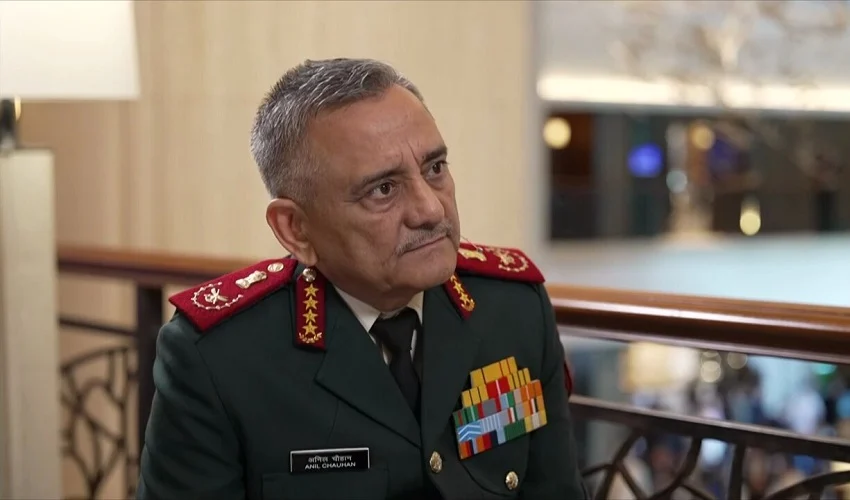Watts’ comments come amid rising unease over what he describes as a troubling and persistent lack of transparency within India’s military ranks

News Desk
NEW DEHLI: Indian defence analyst Rashbh Watts has delivered a sharp rebuke to Chief of Defence Staff General Anil Chohan following the latter’s recent public admission of multiple aircraft crashes within the Indian Air Force.
Watts criticized the decision to send General Chohan to international forums, where he was tasked with addressing sensitive questions about technical failures, only for the general to openly confirm the occurrence of plane crashes without providing any clear or detailed explanation.
Watts’ comments come amid growing unease over what he describes as a troubling lack of transparency within India’s military ranks. While General Chohan remains visible on the national stage, delivering speeches and engaging with officials across the country, the precise scale of the air force’s losses remains shrouded in uncertainty.
Despite admitting to multiple aircraft accidents, the general has stopped short of revealing the exact number of planes lost, leaving analysts, the media, and the public in the dark about the true state of the air force’s operational readiness. This episode has cast a spotlight on the broader issue of military transparency in India, a topic that has increasingly drawn scrutiny in recent months.
Observers argue that in a region marked by complex security challenges, the armed forces must strike a careful balance between protecting national security secrets and maintaining public confidence through openness. The reluctance to disclose concrete figures has only fueled speculation, raising fresh concerns about safety standards, maintenance practices, and the capacity of the air force to meet evolving threats.
Watts’ critique highlights a deeper tension within India’s defence establishment, where demands for accountability collide with traditional imperatives of secrecy. As public questions grow louder, there is mounting pressure on the military leadership to provide greater clarity and reassurance.
The unfolding debate not only reflects concerns over operational challenges but also underscores the importance of trust between the armed forces and the citizens they serve, at a time when the nation’s security environment remains volatile and uncertain.



